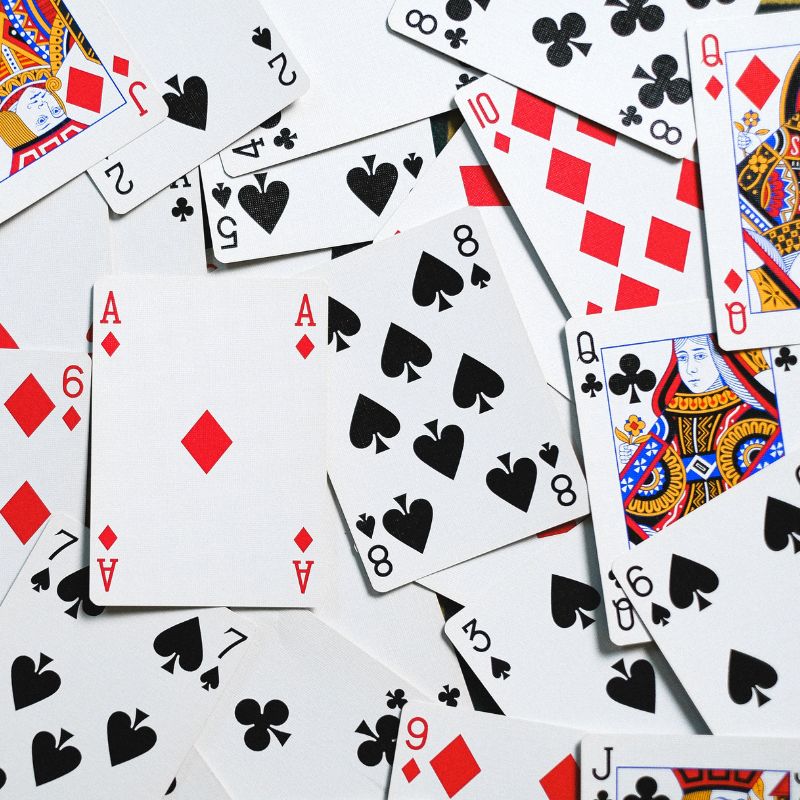All You Need to Know About Face Cards in Blackjack
Blackjack is one of the most familiar card games in UK casinos, available both online and at physical venues. If you are new to the game, you might have heard the term “face cards” and wondered what role they play.
This guide explains what face cards are, how they function in blackjack, and how this information could potentially help you as you play. Read on to learn more.

Face Cards and Their Symbols
Face cards are easily recognised in a standard deck. Each suit contains three: the Jack, Queen, and King, making twelve in total. Each card shows a distinctive portrait, traditionally representing a Jack, Queen, or King figure, and is marked with the letter “J”, “Q”, or “K”.
Number cards differ by showing a number and suit only, while face cards include artwork alongside their letter to help identification.
When playing blackjack in person or online, the design of face cards can vary slightly depending on the provider’s style. However, the basic symbols and their meanings remain consistent.
Blackjack Face Card Worth Explained
In blackjack, face cards—the Jack, Queen, and King—each have a value of ten points. This applies regardless of the suit and whether the game is online or at a physical table.
For example, the Queen of hearts and the Jack of clubs both count as ten points in your hand. This means face cards contribute the same as any card with a value of ten.
The Ace differs as it can count as either one or eleven points, depending on what benefits your hand. It might be helpful to check the rules of the specific game you are playing, especially online, as some variations might exist.
Handling Two Different Face Cards
If your first two cards are face cards, such as a Jack and a King, your total would be twenty points.
A hand totaling twenty is strong in blackjack. If your total is higher than the dealer’s and does not exceed twenty-one, your hand wins the round, provided the dealer does not reach a higher or equal total.
Face cards have no difference in value between Jack, Queen, or King apart from their design. This is generally consistent in UK casinos.
Some games allow you to split your hand if you have two cards of the same value. Whether you can split two face cards depends on the game’s rules, which vary between casinos. Some only allow splitting exact pairs, such as two Queens or two Jacks.
Online Blackjack Details for Face Cards
When playing blackjack online in the UK, face cards are clearly displayed and marked with “J”, “Q”, or “K”. Digital decks follow the same value system and rules as physical decks, though visual designs can differ between software providers.
UK online casinos operate under strict regulation. Their games undergo regular testing to ensure fairness, with Random Number Generators (RNGs) used to shuffle and deal cards unpredictably.
Before starting, reviewing the game’s paytable or help section could clarify how face cards and other elements function. Some versions include side bets or special payout conditions.
Exploring different game variations can be done by browsing a casino’s blackjack selection to find the options that suit your preferences.
Common Face Card Questions
Face cards each have a value of ten points. Number cards are worth their face value.
No, the suit does not affect the value of face cards. For instance, the King of hearts holds the same value as the King of spades.
Many blackjack games allow splitting pairs of the same rank, such as two Kings or two Jacks. However, some games restrict splitting to identical cards only. It could be helpful to check the specific game’s rules.
Licensed online blackjack games use RNGs to shuffle and deal cards randomly, following UK Gambling Commission (UKGC) regulations to ensure fairness.
The standard deck has twelve face cards out of fifty-two cards. This ratio remains the same in online and land-based games unless the game uses multiple decks or special rules, which will be noted in the instructions.
**The information provided in this blog is intended for educational purposes and should not be construed as betting advice or a guarantee of success. Always gamble responsibly.
*All values (Bet Levels, Maximum Wins etc.) mentioned in relation to these games are subject to change at any time. Game features mentioned may not be available in some jurisdictions.
